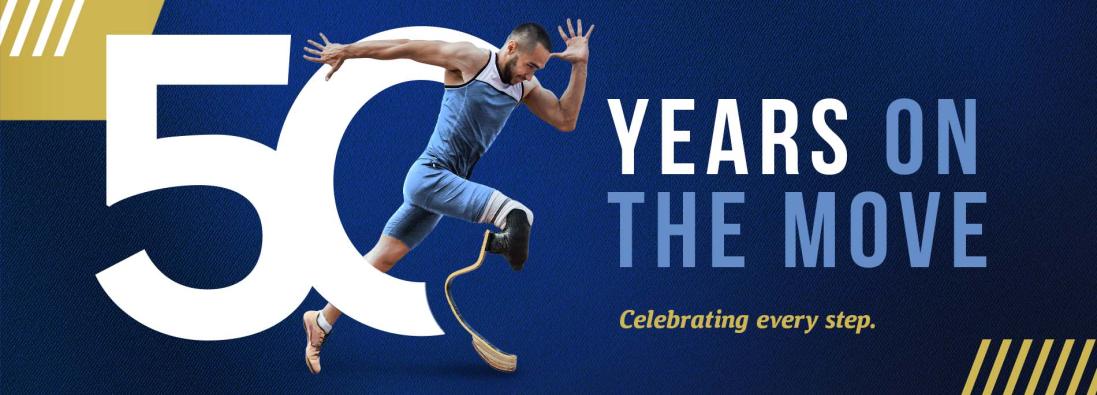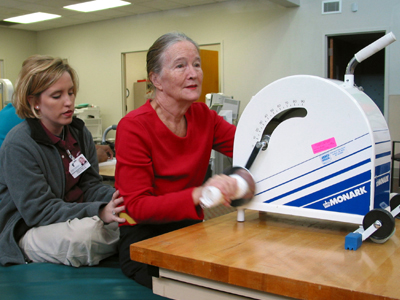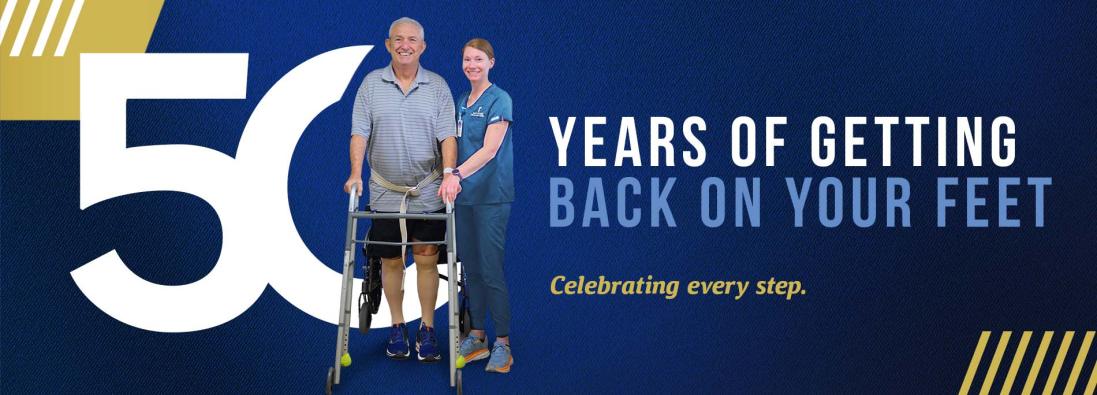

JACKSON, Miss.—As thousands of Mississippians take precautions against the flu bug, Patricia Wilkes continues her fight against a very different kind of bug.
It was a mosquito carrying West Nile virus that first put Wilkes of Picayune in the hospital in November and robbed her of her ability to walk.
“It came on pretty sudden,” she said. “I woke up one morning and everything seemed fine. I didn’t feel great, but I didn’t notice anything wrong.”
She made breakfast for her husband Bert before he left for work. Shortly after that, as she walked through her bedroom, she lost all strength in her right leg and fell. Fortunately, Bert Wilkes had a light day at work and decided to go home early. He found her on the floor.
“I couldn’t move,” Wilkes said.
When Patricia Wilkes first arrived at the hospital near her hometown, she got a cursory and incorrect diagnosis, as is frequently the case with West Nile virus. “They said my sodium was low and I was dehydrated,” she said. They gave her intravenous fluids and sent her home. But she and Bert knew something was wrong. “She had a 103 degree temperature and she couldn’t walk,” Bert Wilkes said. “I called the local doctor and we took her over there. He sent her right back to the hospital.”
That’s when the tests started. Doctors initially thought she had Guillian Barre Syndrome, an auto-immune disorder that can cause swift paralysis and is frequently the first wrong diagnosis in West Nile cases.
Several days later Wilkes, 65, was diagnosed with West Nile virus. “I really knew very little about it. I knew if you were very young or very old you could die from it. But I didn’t know about the other symptoms that could come with it,” she said.
Suzanne Wilkes, Patricia Wilkes daughter-in-law and a medical equipment sales representative for Medtronics, spends a lot of time in rehabilitation hospitals. She was familiar with Methodist Rehabilitation Center’s reputation for treating West Nile virus patients and urged her mother-in-law to go there for care.
“Before we even understood there were neurological problems, I knew she would need rehabilitation as soon as possible. I wanted to do whatever I could to help her get back as much agility as possible,” Suzanne Wilkes said.
Patricia Wilkes said the virus left her so weak she was like a baby at first, having to work hard to regain basic movement. She spent two weeks as an inpatient at Methodist Rehab and several more in therapy at the hospital’s outpatient facility in Flowood. She worked with physical and occupational therapists to build strength and control in her upper and lower body before returning home to Picayune where she continues the rehabilitation exercises she learned at the hospital. “The therapists at the hospital and outpatient clinic were so nice. Those ladies were really a big help to us,” Bert Wilkes said.
Patricia Wilkes isn’t sure when she was bitten. She loves to garden and spends a lot of time in her yard, but doesn’t remember getting many mosquito bites. “I wish the mosquito had bitten a bird instead of me. This is an illness that takes a toll,” she said.
Researchers have found West Nile virus presents in a variety of ways and has a gamut of symptoms that range from fairly mild to debilitating to deadly. It’s like other diseases in that it is more often serious in people with immune systems weakened by other illnesses, and the very young or very old, who also have weaker immune systems. But West Nile virus is unusual in that it attacks otherwise healthy people in a range of ways. As some scientists work feverishly to find a vaccine, others are studying the long-term affects of the illness in hopes of providing better care and treatment for those who do suffer the full brunt of the illness.
Doctors at the Center for Neuroscience and Neurological Recovery at Methodist Rehab in Jackson are at the forefront of this research. They were the first to discover a link between West Nile virus and a polio-like paralysis that may strike about one out of every 150 West Nile victims.
CNNR researchers are currently about half-way through a one-year study that is designed to answer some of the questions. And while they have made discoveries, the answer to why the virus affects healthy people in such a range of ways continues to elude them.
“You have to realize that most people who are infected suffer few symptoms. Many times the virus will even go unrecognized and be categorized as a mild upper respiratory infection,” said Dr. Art Leis, senior CNNR scientist. “Why it goes on to be so devastating in others is something we still don’t understand.”
They have identified additional symptoms not previously attributed to the virus, such as, facial weakness, difficulty swallowing, double vision and loss of vision in one eye.
Their initial discoveries showed the virus attacking the anterior horn cells of the spinal cord, which controls muscle function in the body and leads to the paralysis. New research expands on that, revealing the virus can go beyond the anterior horn cells to attack other nerves and muscles, causing additional loss of motor control in the limbs.
Leis said their research will help in the continued treatment and rehabilitation of those who develop the most serious symptoms of the illness. In the meantime, he is confident a vaccine will be on the market in the next few years.
But for Patricia Wilkes and others like her, the focus now is on continued rehabilitation.
“We know it’s not likely that she will get everything back,” Bert Wilkes said. “But she’s willing to do the work to recover as much as she can.”
